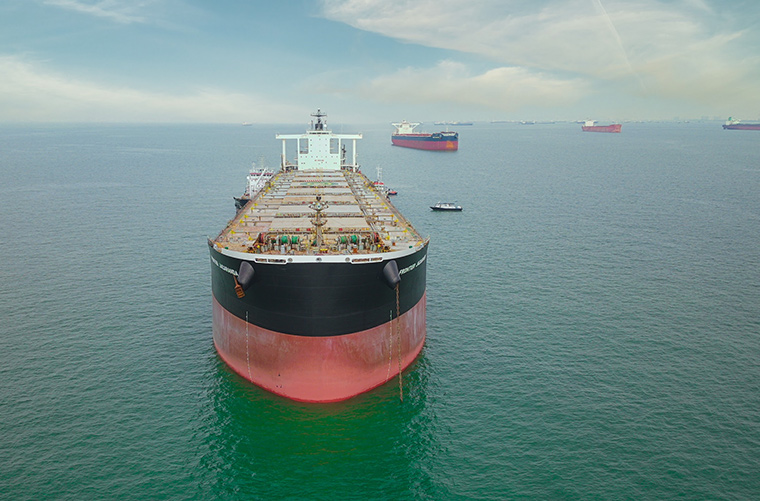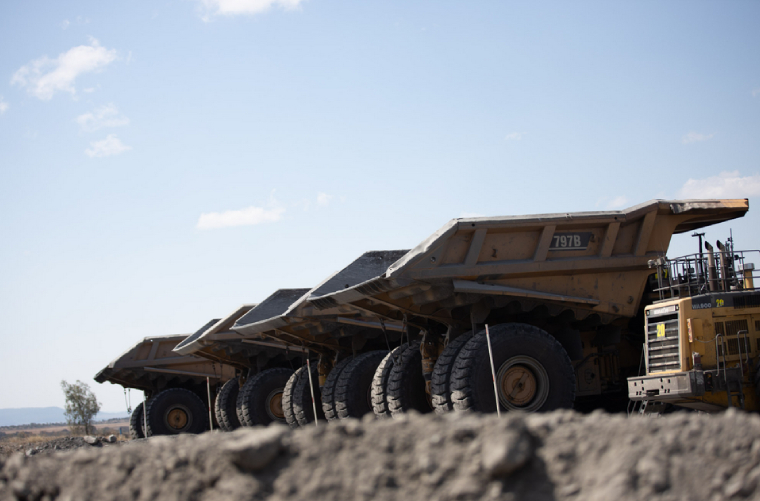Applying the principles of a circular economy, we are eliminating waste while creating value and supporting the communities in which we live and work.
Many of us are likely familiar with the linear ‘Take. Make. Use. Dispose’ economic model but, with 80% of the world currently running at an ecological deficit1 – using more resources than we can regenerate – we cannot wait until tomorrow to start making a difference.
At Anglo American, sustainability lies firmly at the heart of our decision-making and, supporting our ambition to achieve carbon neutrality across our operations by 2040, we are applying the three basic principles of the circular economy to the way we work.
This includes reducing waste and pollution; keeping products and materials in use by designing them for reuse, repair, remanufacturing or recycling – so they don’t end up in landfill; and regenerating natural systems, by avoiding the use of non-renewable resources or through preserving and enhancing renewable resources, such as returning valuable nutrients to the soil.
One example is our collaboration with Japanese shipping company, NYK Line and Singaporean firm, Alpha Biofuels, to trial the use of sustainable biofuel. The biodiesel blend, supplied by Toyota Tsusho Petroleum and used to power the capesize bulk carrier, MV Frontier Jacaranda, during part of a commercial voyage from Singapore to South Africa, was produced by recycling waste cooking oil from Singapore’s food and beverage industry.
The success of the trial marked an important step forward in establishing biofuel as a viable option and, encouraged by the results, we have started further trials in Singapore this year, with the aim of operationalising biofuel as part of our future fuel mix.
Cross-industry collaborations like this are a key enabler of the circular economy, and our partnership with Novum Energy Australia is another example that demonstrates how we are working with others to reshape the economy towards a more sustainable path.
We will supply used mining truck tyres and conveyor belts from our metallurgical coal operations in Central Queensland to Novum, who will convert the rubber into industrial products including heavy and light oils, carbon black, syngas and steel at its thermal recovery processing facility. The facility will be able to process up to 8,000 tonnes of waste tyres and conveyor belts each year.
The re-use of waste in this way is not limited to the industrial sector. In Brazil, where agriculture plays a key role in supporting the country’s economy, we saw an opportunity to apply similar principles at our Barro Alto nickel-producing mine and processing plant. Together with a local Brazilian start-up and public university, we have been exploring the potential for waste produced during the nickel ore smelting process – a type of magnesium silicate (MgSiO) also known as ‘ferronickel slag’ – to be used as a fertiliser.
Optimising our processes and operations – by using less energy, recirculating more water, extracting more metal from the ore and conserving the natural environment – and employing digitalisation to extend the life of our equipment or to ensure we use our resources as efficiently as possible will also help us drive progress.
Our ability to fully seize the opportunities offered by the circular economy depends on cultivating a culture of innovation across our business and, recognising this, last year we invited employees of Anglo American to take part in our Circular Economy Day, designed to explore the challenges and opportunities that the circular economy represents and how they can help us deliver against our Sustainable Mining Plan.
Following this, later in the year we launched our inaugural CircuLab programme, designed to embed circular economy thinking across our organisation and to encourage our teams to find ideas with the potential to accelerate our progress.
1 Global Footprint Network, accessed 29 November 2021: https://bit.ly/315ltBo



